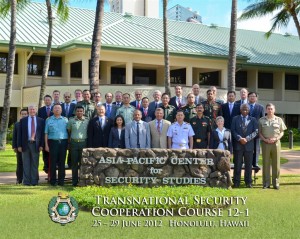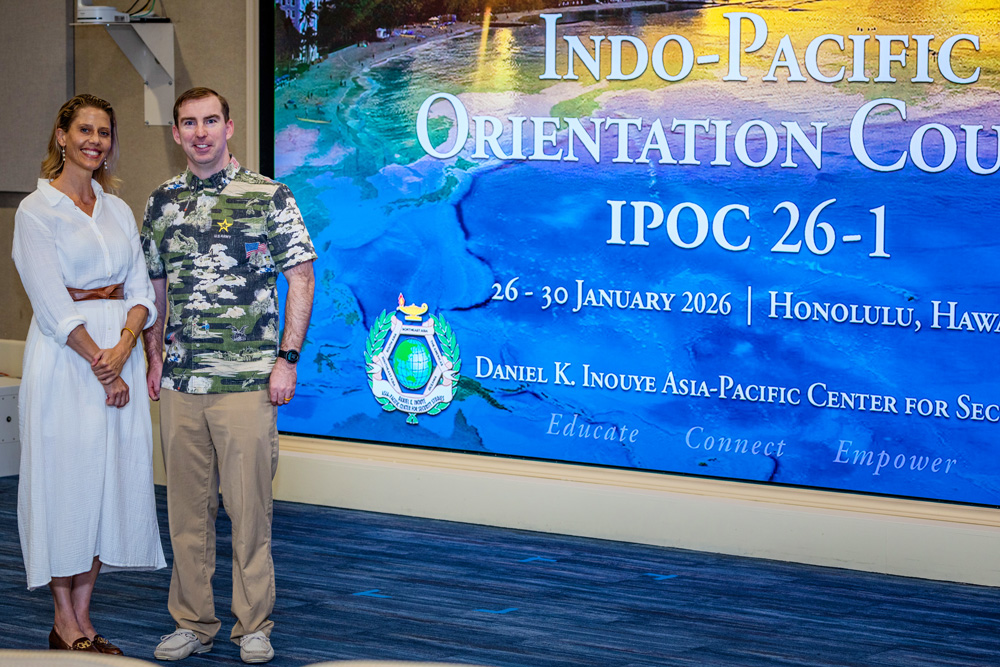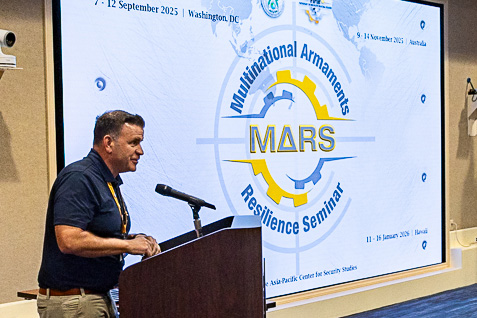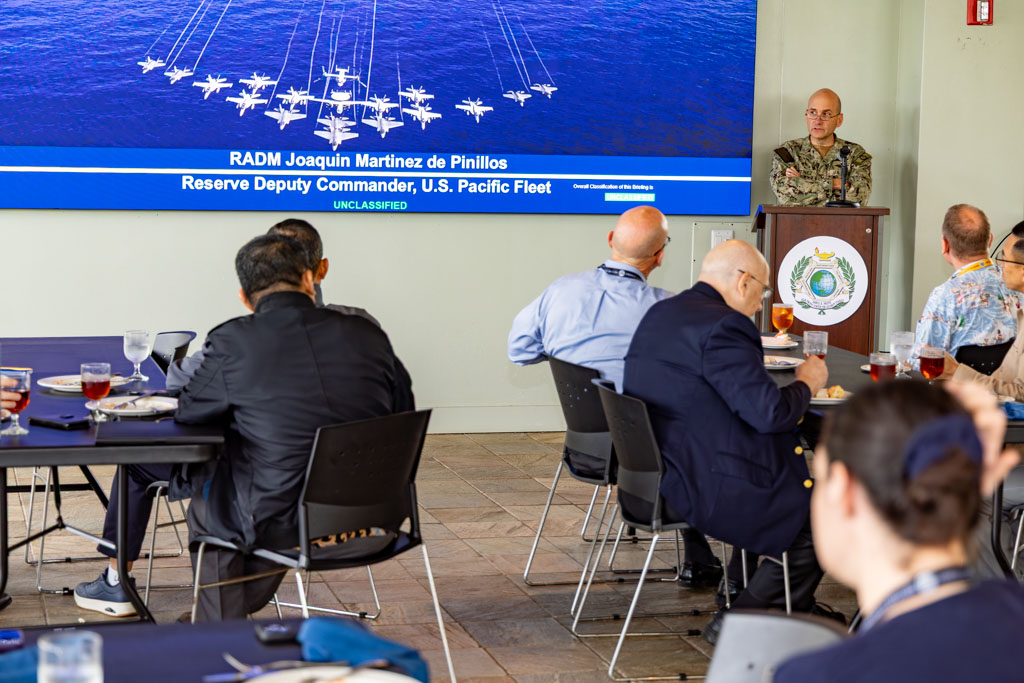 Twenty-seven senior executives from 24 locations and one international organization completed the Transnational Security Cooperation (TSC) course June 29 at the Asia-Pacific Center for Security Studies in Honolulu. They included military and civilian leaders from Afghanistan, Australia, Cambodia, Canada, China, Fiji, India, Indonesia, Laos, Malaysia, Maldives, Mongolia, Nepal, New Zealand, Pakistan, Philippines, Russia, South Korea, Sri Lanka, Taiwan and Vietnam, as well as the Association of Southeast Asian Nations.
Twenty-seven senior executives from 24 locations and one international organization completed the Transnational Security Cooperation (TSC) course June 29 at the Asia-Pacific Center for Security Studies in Honolulu. They included military and civilian leaders from Afghanistan, Australia, Cambodia, Canada, China, Fiji, India, Indonesia, Laos, Malaysia, Maldives, Mongolia, Nepal, New Zealand, Pakistan, Philippines, Russia, South Korea, Sri Lanka, Taiwan and Vietnam, as well as the Association of Southeast Asian Nations.
The course is an intensive program for current and future senior regional influencers/leaders; military officers at the one-to-four-star levels, as well as their civilian equivalents from the Asia-Pacific region. The curriculum emphasizes the impact of current and future change in the region, as impacted by regional and global security threats. The course includes guest speakers, interactive seminar workshop scenarios addressing complicated transnational threats and discussions with senior U.S. Pacific Command officials, all intended to share perspectives and further indentify cooperative approaches to transnational security issues of common concern.
The Asia-Pacific Center for Security Studies is a Department of Defense academic institute that addresses regional and global security issues. Military and civilian representatives, most from the U.S. and Asia-Pacific nations, participate in a comprehensive program of executive education, professional exchanges and outreach events, both in Hawaii and throughout the Asia-Pacific region. The Center supports the U.S. Pacific Command by developing and sustaining relationships among security practitioners and national security establishments throughout the region. Its mission is to build capacities and communities of interest by educating, connecting, and empowering security practitioners to advance Asia-Pacific security. It is one of the Department of Defense’s five regional security studies centers.
Since opening in 1995, APCSS has had representatives from 104 countries and territories, and four international organizations attend courses at the Center for a total of 6,548 alumni.
-END-









Leave A Comment